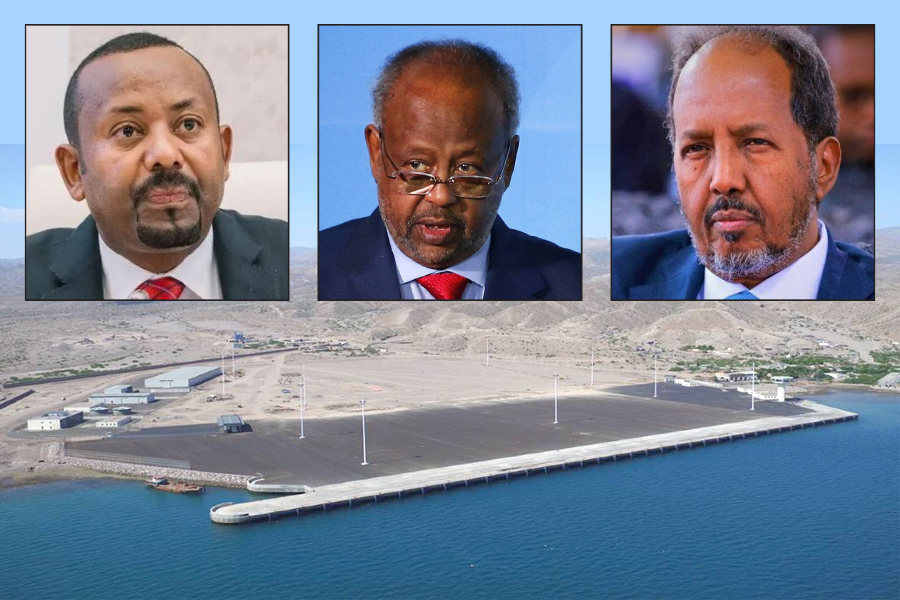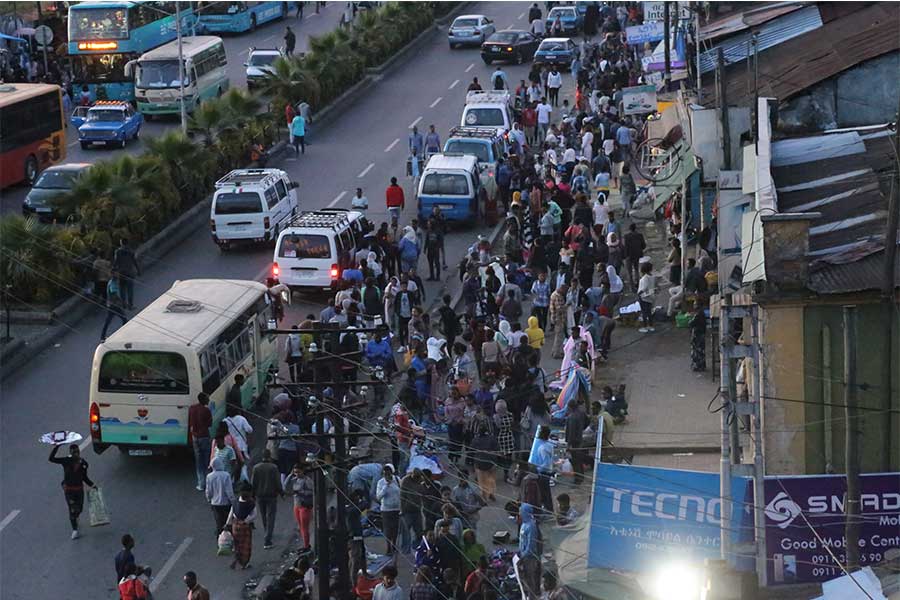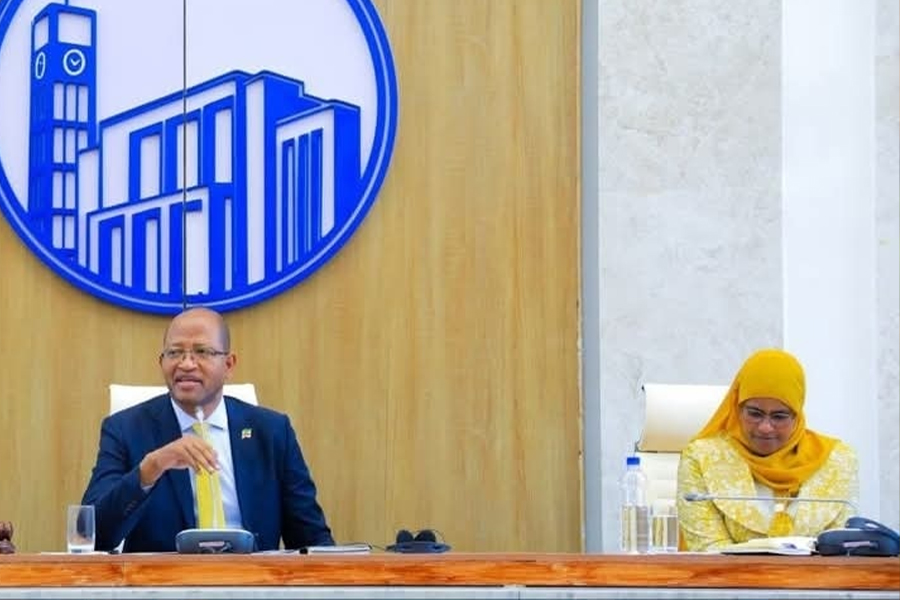
Radar | Apr 09,2022
The federal government has granted concessions to eight companies involved in the extraction of coal two weeks after the Council of Minister's gave the go-ahead amid concerns about environmental hazards.
With a combined registered capital of six billion Birr, the companies are expected to start operations by the end of this year, according to the agreement their representatives signed with the officials of the Ministry of Mines.
Once operational, the companies, spread across three regional states, will have an aggregate annual production capacity of 4.2 million tons of coal in a decade. The concessions have been granted for 10 years with the possibility of renewal for another decade.
“The government is working to replace imported coal with local production to save foreign currency,” said Takele Uma, minister of Mines, during an award event held last week. "Ethiopia will substitute imported coal by next year."
The bills for importing coal to power mainly cement factories have risen, reaching 275 million dollars last year. It is four times larger than the amount spent to import 650,000tn of coal in 2017 and double the volume shipped into the country five years ago. Market prices for a tonne of coal hover around 20,000 Br, while locally-mined coal can be bought for a third of this value, industry insiders estimate.
Ethiopia's coal exploration efforts go as far back as the 1940s, with an estimated deposit of 600 million tons. However, despite lukewarm efforts in the past, no industrial-scale investments in extracting coal were made. Issuing concession to industrial-scale coal mining is a mandate of the federal government; regional states have the right to permit small-scale coal extraction.
Regional states have issued permits to small-scale coal mining enterprises organised by unemployed youth through cooperatives. Close to 175 small-scale coal mining operations with a combined production capacity of half a million tonnes operate in four regional states, including Oromia and Benishangul-Gumuz, the two regional states where vast coal reserves are believed to be found.
These small-scale producers cover 55pc of the national coal demand. The rest is filled from imports. The primary coal consumers are cement manufacturers, and steel and metal companies that depend heavily on carbon-intensive fuels.
There are 19 cement factories in operation requiring 4,600tn of coal a day. Running at full capacity, they have a combined annual production of 18 million tons. The state-owned Muger Cement can churn out 2.3 million tons of cement a year, burning 700tns of coal daily.
Last year, Muger slaked 70pc of its coal demand from the local market, disclosed Gezahegn Dechasa, general manager.
"This year, the company plans to use local coal to cover 85pc of its needs," he told Fortune.
However, the subpar quality of locally-produced coal remains an issue with cement plants. Locally processed coal has an average energy production capacity of 4,000 kilo-calories a kilogramme, while coal imported mainly from South Africa contains 1.5 times more energy.
The main reason behind the low quality of locally-processed coal is the absence of coal washing and purifying plants. Federal authorities hope that the companies granted concession last week will fill this gap. They have agreed to install coal washing and purifying plants to improve the quality of coal they and small-scale miners produce.
Oromia Mining S.C. is one of the three companies licensed to extract and wash coal in Oromia Regional State. The company targets to process 352,800tns of coal annually with an investment outlay of 268.6 million Br.
“We're in the process of importing a coal washing plant from South Africa at the cost of two million dollars,” said Tesfaye Tadesse, manager of the company.
National Mining Corporation and Real Trading Plc, with an annual production of 600,000tn and 209,106tn, respectively, were issued concessions in Oromia. They have a combined registered capital of 2.7 billion Br.
Shakana Boys Plc and L Net Technology Group were granted concessions to extract coal in Benishangul-Gumuz. Sun Mining & Trading, a subsidiary of the Sunshine Investment Group, owned mainly by Samuel Tafesse, wants to develop a coal reserve site in the Southern Regional State.
Tigabu Atalo, a power consultant with a decade of experience, observes coal is the most optimal available source of energy for cement factories considering the erratic electric power supply in the country. Hydroelectric power dams, wind farms and geothermal energy sources currently supply over 4,000mw of electricity in Ethiopia.
Still, Tigabu has doubts about the sustainability of coal as an energy source due to global concerns about its impact on the environment.
“The developed world is pressuring least developed countries like Ethiopia to stay away from fossil fuels because they release large amounts of carbon dioxide, which is a greenhouse gas,” said Tigabu. “The plants that use coal as a primary source of energy might be forced to abandon coal or employ technologies that reduce the release of greenhouse gases. However, such technologies require huge sums of money.”
East Africa Mining Corporation (EAMC) is among the companies that received a license to produce 360,000tns of coal annually with an initial investment amounting to 731 million Br. A subsidiary of East Africa Holdings, mainly owned by Buzuayehu Tadelle, the company had been extracting 150tn of coal annually from two sites in Moye Wereda, 70Km west of Jimma in the Oromia Regional State. It supplied coal to National Cement in Dire Dawa, one of the subsidiary companies under East Africa Holdings.
The company was forced to halt production after a year of operation due to instability and security concerns in the region, according to Gezahegne Hamza, general manager of East Africa Mining.
“We'll resume operation with greater capacity at the new location within a year,” Gezahegne told Fortune.
The new exploration site is located in the Dawro Zone of the South-West Regional State. The company's feasibility study projects a positive return on its investment in three years.
Located in the same region where EAMC won concessions, ET Mining Development S.C. has also been granted a concession to extract 712,800tns of coal annually with an outlay of 1.5 billion Br investment.
A dozen companies had applied to the federal authorities for large-scale coal mining licenses. But, the Ministry rejected four for they failed to submit the required documents, according to Firehiwot Fekadu, director of communications at the Ministry.
PUBLISHED ON
Jan 15,2022 [ VOL
22 , NO
1133]

Radar | Apr 09,2022

Fortune News | Sep 01,2024

Radar | Aug 04,2024

Agenda | Oct 19,2019

Fortune News | Jul 02,2022

Life Matters | Apr 09,2022

Fortune News | Aug 06,2022

Fortune News | Oct 09,2021

Radar | Apr 27,2025

Radar |

Dec 22 , 2024 . By TIZITA SHEWAFERAW
Charged with transforming colossal state-owned enterprises into modern and competitiv...

Aug 18 , 2024 . By AKSAH ITALO
Although predictable Yonas Zerihun's job in the ride-hailing service is not immune to...

Jul 28 , 2024 . By TIZITA SHEWAFERAW
Unhabitual, perhaps too many, Samuel Gebreyohannes, 38, used to occasionally enjoy a couple of beers at breakfast. However, he recently swit...

Jul 13 , 2024 . By AKSAH ITALO
Investors who rely on tractors, trucks, and field vehicles for commuting, transporting commodities, and f...

Oct 25 , 2025
The regulatory machinery is on overdrive. In only two years, no fewer than 35 new pro...

Oct 18 , 2025
The political establishment, notably the ruling party and its top brass, has become p...

Oct 11 , 2025
Ladislas Farago, a roving Associated Press (AP) correspondent, arrived in Ethiopia in...

Oct 4 , 2025
Eyob Tekalegn (PhD) had been in the Governor's chair for only weeks when, on Septembe...